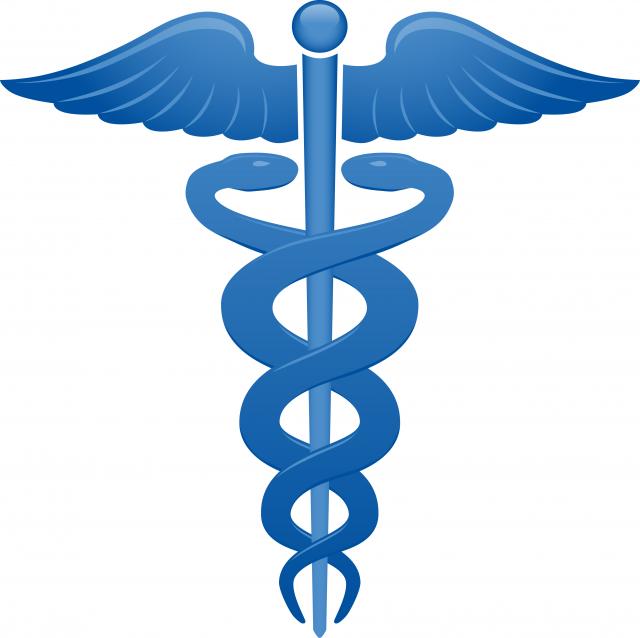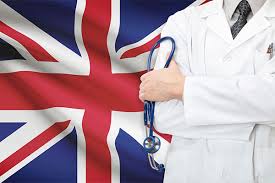
Thinking about pursuing PG in UK after MBBS in India? You’re definitely not alone. Every year, a growing number of Indian medical graduates explore PG in UK as a practical and career-focused alternative to the intense competition of NEET PG in India. With globally respected universities, structured NHS-based training, and multiple entry pathways, the UK has become a preferred destination for doctors looking for long-term professional growth. From medical PG in UK programs such as MD-equivalent pathways and MSc courses, to hands-on clinical PG in UK routes through MRCP, PLAB, or GMC-approved sponsorships, the options are both diverse and flexible. One of the biggest advantages of choosing PG in UK after MBBS in India is that PLAB is not always mandatory. Many Indian doctors now successfully pursue PG in UK without PLAB through university-led programs, sponsored GMC registration, or clinical training routes aligned with NHS workforce needs. Along with this, the overall cost of PG in UK for Indian students, transparent admission criteria, and structured career progression make the UK an attractive choice for MBBS graduates who want international exposure without unnecessary delays. The United Kingdom also offers a highly supportive and evolving ecosystem for international doctors. Recent updates by the NHS and General Medical Council (GMC) have further streamlined recognition pathways for Indian graduates, making the transition smoother than ever. Choosing the right specialty, understanding eligibility for PG in UK after MBBS, and comparing options such as PLAB vs MRCP at an early stage can significantly impact your career trajectory. For ambitious Indian doctors, clinical PG courses in the UK after MBBS in India not only enhance clinical competence but also open doors to global mobility, long-term NHS careers, and international recognition.

Why Pursue PG in UK After MBBS in India?
Choosing PG in UK after MBBS in India has become a strategic decision for many Indian doctors who want globally recognised training and long-term career flexibility. One of the biggest advantages is the availability of direct admission routes to PG medical programs in the UK, without the extreme competition seen in India. UK medical degrees are highly reputed and accepted worldwide, and India already has a large number of UK-qualified doctors who have consistently demonstrated high clinical competence and professional standards across healthcare systems.
In recent years, medical PG in UK after MBBS in India has become more accessible due to updated UK medical policies for International Medical Graduates. Regulatory changes by the NHS and the General Medical Council (GMC) have simplified entry pathways, making it easier for Indian MBBS graduates to pursue both academic and clinical PG in UK programs. This has opened up structured, transparent routes for doctors who are looking to build an international medical career.
Pursuing a PG medical qualification in the UK also means training in a system that strongly emphasises evidence-based clinical practice, multidisciplinary teamwork, and the use of advanced medical technologies. Doctors benefit from structured supervision, mentorship programs, career development workshops, and opportunities to participate in audits, research, and international medical conferences. Successfully completing PG in UK after MBBS in India can further lead to higher specialty training, academic medicine, or leadership roles within the NHS and globally—making it a long-term investment rather than just a degree.
PG Abroad After MBBS in India – Entry Pathways for PG in UK
For Indian medical graduates, pursuing PG in UK after MBBS in India is possible through multiple structured and well-defined entry routes. The United Kingdom offers flexible pathways that allow doctors to enter medical PG in UK or clinical PG in UK programs based on their academic background, clinical experience, and licensing status.
Currently, there are three major pathways available for Indian doctors to pursue PG medical (MD/MS–equivalent) training in the UK. Each route has its own eligibility criteria, advantages, and long-term career outcomes.
Pathway 1: GMC Registration via Sponsorship Route (Without PLAB)
The GMC sponsorship route is one of the most preferred options for Indian doctors who wish to pursue PG in UK without PLAB. The General Medical Council maintains a list of approved sponsors—such as NHS Trusts, universities, and recognised healthcare organisations—that are authorised to sponsor international doctors for postgraduate training or clinical roles in the UK.
Through this pathway, eligible candidates receive hands-on clinical training in associated NHS Trust hospitals while being registered with the GMC under sponsorship. This route is generally available to candidates who have not appeared for or have not attempted any part of the PLAB examination, making it a valuable alternative pathway for early-career MBBS graduates.
Sponsorships are typically awarded based on academic performance, clinical exposure, and formal collaborations between UK NHS trusts and recognised Indian medical institutions. Many of these programmes allow candidates to demonstrate clinical competence directly through structured training, assessments, and supervised NHS exposure—bypassing the need for PLAB while still leading to clinical PG in UK–level experience.
Pathway 2: GMC Registration via PLAB Route
The PLAB route is the most well-known and traditional pathway for Indian doctors aiming for PG in UK after MBBS in India. Under this route, candidates must clear both parts of the Professional and Linguistic Assessments Board (PLAB) examination to obtain full GMC registration.
The PLAB examination consists of:
-
PLAB 1 – A written assessment testing medical knowledge and clinical reasoning
-
PLAB 2 – A practical, OSCE-based assessment evaluating real-world clinical skills
Clearing both stages is mandatory for candidates who are not eligible for sponsorship-based GMC registration. Once registered with the GMC, doctors can apply for NHS clinical roles, training posts, and structured pathways that eventually lead to medical PG in UK or specialty training programs.
Many Indian MBBS graduates choose this route due to its wide acceptance and clearly defined progression, often supported by focused PLAB preparation programs that improve success rates and application confidence.
PLAB Vs MRCP
PLAB Vs MRCS
Pathway 3: No GMC Registration – Under Observership
No GMC registration. The course will be under observership. Observerships are ideal for candidates looking to gain direct exposure to the UK healthcare system without patient responsibility. These positions do not lead to direct clinical practice rights or standalone UK medical licensing but can bolster future PG applications and professional resumes.
PG in UK After MBBS in India: Course Options
One of the biggest advantages of pursuing PG in UK after MBBS in India is the wide range of academic and clinical specialisations available to Indian medical graduates. The UK offers multiple clinical PG in UK pathways through Royal Colleges, NHS-linked training routes, and university-based postgraduate programs. These options allow doctors to choose between hands-on clinical training, academic master’s degrees, or a combination of both—depending on long-term career goals.
Popular Clinical PG in UK Specialisations
Many clinical postgraduate programs in the UK are structured around Royal College examinations and training frameworks, which are globally respected and widely recognised:
-
MD Internal Medicine (MRCP)
-
Gynecology in the UK (MRCOG)
-
Paediatrics in UK (MRCPCH)
-
MS Orthopaedic Surgery in UK (FRCS – Ortho)
-
Radiology in UK (FRCR)
-
MS General Surgery in UK (MRCS)
These pathways focus heavily on evidence-based clinical practice, supervised NHS training, and competency-based progression, making them ideal for doctors seeking long-term clinical careers in the UK or internationally.
University-Based PG Options
In addition to Royal College–led clinical pathways, medical PG in UK also includes a wide range of university-offered postgraduate degrees that are suitable for MBBS graduates:
-
MSc Clinical Embryology
-
MSc Nuclear Medicine
-
MSc Medicine (Cardiovascular, Diabetes, Oncology, Respiratory Medicine, Orthopaedics, and related fields)
-
MSc Surgical Sciences
These programs are particularly suitable for doctors interested in academic medicine, research, diagnostics, sub-specialisation, or roles that combine clinical knowledge with advanced scientific training.
Research-Focused and Sub-Specialisation Opportunities
Beyond traditional clinical specialties, UK universities offer research-focused postgraduate programs such as MSc and MRes degrees, along with sub-specialisation tracks in areas like oncology, cardiology, and radiology. In parallel, Royal Colleges conduct specialty-specific postgraduate diplomas, certifications, and fellowships that provide alternative routes to advanced clinical expertise.
Together, these diverse options make PG in UK after MBBS in India a flexible and future-oriented choice—allowing Indian doctors to tailor their postgraduate training based on clinical interests, academic strengths, and global career aspirations.
Whether PG in UK after MBBS in India is recognised by MCI now NMC
The Medical Council of India (MCI) now National Medical Commission (NMC) recognises and accepts the post-graduate qualifications from the UK
MCI Recognised PG qualification abroad
Indian doctors with UK postgraduate qualifications must ensure verification and registration with the NMC upon their return to India for legal clinical practice. It is crucial to stay updated on equivalency criteria and documentation required by Indian authorities for seamless transition and employment.
Proof of English proficiency is generally required via recognized tests such as IELTS or OET. Some universities may demand as much as two years of prior clinical experience for MS/MD courses, and requirements may vary across specialties. Early application and detailed review of course-specific requirements are highly recommended. A strong personal statement and tailor-made reference letters can significantly strengthen applications.
Eligibility requirement for PG in UK after MBBS in India
- You must hold Primary Medical Qualification recognized by GMC
- Relevant clinical experience and passion for the subject
- English Language Proficiency
- Statement of Purpose
- Reference Letters
- Interview
Tuition fees for PG in UK after MBBS in India range between GBP 12000 – 39000 depending upon the university. UK Universities offer scholarships and fee discounts for deserving candidates on the basis of their educational qualifications and experience in the field of medicine. Living cost in the UK usually comes to around GBP 800 – 1100 outside London and around GBP 1100 – 1500 within London.
UK Visa fees and IHS Surcharge
UK Tier 4 Student Visa fees are GBP 524 and you are required to pay an Immigration Health Surcharge (IHS) of GBP 776 for a stay that lasts 6 to 12 months and an additional GBP 235 for any additional period that is less than 6 months.
UK Immigration Health Surcharge Calculator
Applicants should budget for additional costs such as visa processing, accommodation deposits, travel insurance, and preparatory expenses. Many UK universities provide dedicated international student support teams to assist with visa application guidance and settling-in services.How to apply for PG in UK after MBBS in India?
University Selection
One should carefully research the university and course curriculum, and a proper study ensures that you are joining the program that meets your career aspirations
Check university eligibility requirements
Every university has their entry requirements in terms of English Language Proficiency and academic requirement. Before finalising university these should be reviewed
Application Filing
After making proper research about the course and eligibility requirements, you can complete the online application form, and upload supporting documents like academic transcripts, CV, personal statement, reference letter, English Language test scorecard, passport copy and other relevant documents. Make sure your documents should be in English else provide translations.
Interview
UK universities often conduct interviews to know more about your interest in the subject. These interviews are normally online.
Many universities also offer rolling admissions or multiple intake periods per year, giving flexibility for application planning. Attend virtual open days, join applicant webinars, and seek feedback from current PG students in your desired specialty to maximize preparedness and informed decision-making.
PG in UK after MBBS in India: FAQ’s
Is PLAB mandatory for all PG medical courses in the UK?
No, PLAB is not mandatory for all PG programs. Several GMC-approved sponsor routes and direct university admissions permit entry without PLAB, depending on the chosen program and applicant background.
Which UK PG degrees are recognized by India’s NMC?
Most clinical postgraduate degrees and credentials (MD, MS, certain MRCP/MRCS) from UK universities and Royal Colleges are recognized by the National Medical Commission (NMC), provided the institution and course have the required accreditations. Visit MCI Recognised Abroad PG Qualifications
What exams/tests besides PLAB are relevant for specialty training?
Specialty-specific exams like MRCP (Medicine), MRCS (Surgery), and MRCOG (Gynecology & Obstetrics) can serve as alternate or complementary routes to specialty registration and clinical practice in the UK and other countries.
How much does it cost to complete a PG medical degree in the UK?
Tuition fees range between GBP 15,000–49,000 per year, and living expenses average GBP 900–1500 per month depending on location. Scholarships, bursaries, and financial aid options are available for meritorious international students.
Can I return and practice in India after UK PG?
Yes, as long as your PG qualification is recognized by the NMC (formerly MCI). Equivalency certificate and registration procedures must be completed as per NMC guidelines.
What is the typical duration of clinical PG medical courses in the UK?
Most full-time clinical PG medical courses (MD/MS) last between 2–3 years. Some research-based or sub-specialty programs may vary in length.
Will I be eligible for jobs in the NHS after completing PG in the UK?
Yes, successful graduates from recognized programs with valid GMC registration can apply for NHS jobs, post-registration or upon meeting work visa criteria.
How do we help PG in UK after MBBS in India?
We provide complete guidance to ambitious medical professionals looking forward to pursuing their post-graduation in the UK to enrich their clinical knowledge and skills. We assist applications for all clinical specialties in the UK. To know more about streams, duration, fees please complete the below form.

